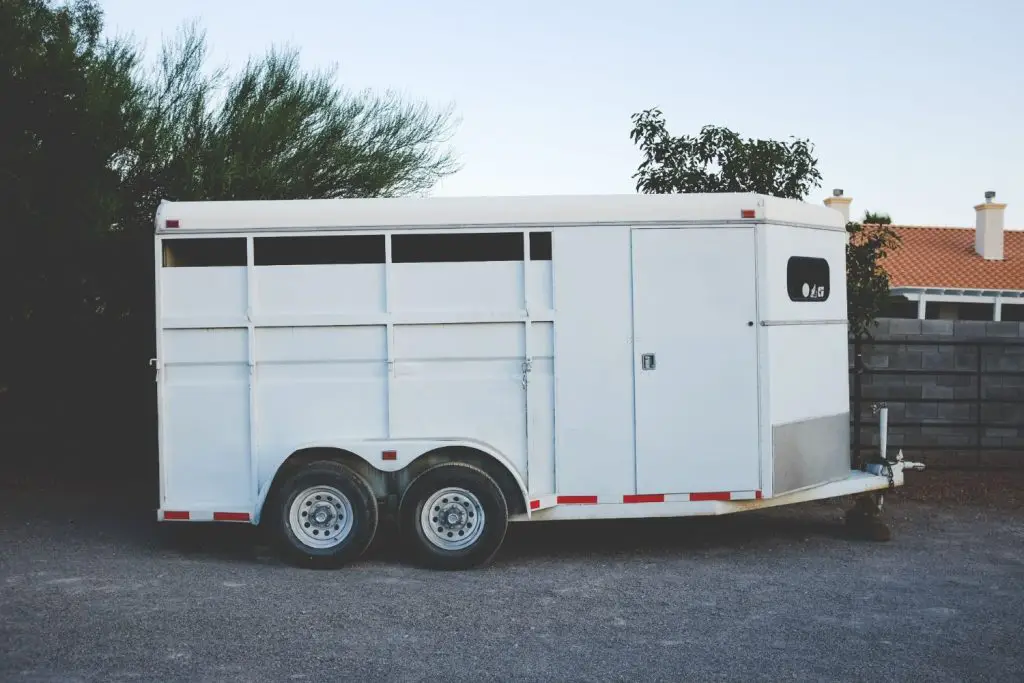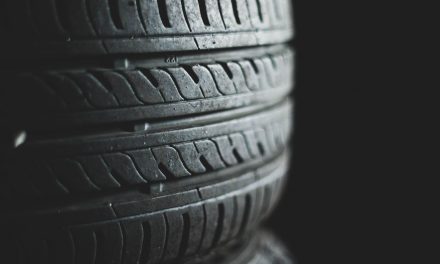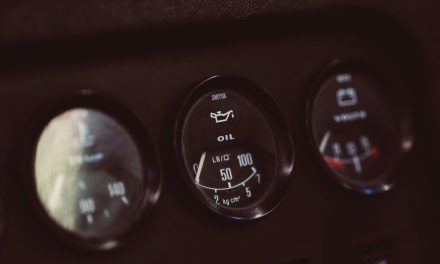Trailer tires typically have much higher PSI requirements than regular tires. They have to carry a heavier load, so they need more pressure to counteract the low resistance. However, over-inflating a tire can cause long-lasting issues. You might be wondering if the same problems can happen with trailer tires.
It’s possible to over-inflate trailer tires by exceeding the maximum PSI or inflating a tire with holes or thin rubber. Over-inflating a trailer tire can cause bubbles, soft spots, and flat tires on the road. It can also make your tires pop while driving, which is quite dangerous.
This article will explain what happens when you put too much air in your trailer tires, how to avoid it, and how to choose the proper PSI. Enjoy!

What Happens if You Over-Inflate Trailer Tires?
If you over-inflate trailer tires, you’ll drastically increase the chances of popping the tires or getting flats. The excessive PSI looks for the thinnest parts of the rubber of the tread, which is the most common area for punctured tires.
Here’s a quick look at what you should know about over-inflating your trailer tires:
- A trailer tire’s maximum load is equally crucial to its PSI. The maximum load will be next to the tire’s recommended PSI. If you go over the maximum load capacity, the tires can pop (even if you have them filled to the perfect PSI). This happens due to a sudden increase in internal pressure.
- Never tow a trailer if the tires look bubbled or warped after filling them. This is a common symptom of over-inflation. Bubbles are a precursor to flat tires and punctures in the tread. The same issues apply to warped tires that flatter in some spots than others.
- Some companies recommend having lower PSI in the rear tires. This applies to the trailer manufacturers, not the tire manufacturers. For example, a trailer company might recommend 70 PSI rear tires and 80 PSI front tires. Ensure the tires are filled to their maximum PSI, not the average maximum PSI.
- Old tires with thin treads have a higher chance of over-inflating. Check the trailer tire’s expected maximum mileage. If you drive them more than their recommended mileage, you’ll be closer to over-inflating them. Fortunately, you can retread most old tires with mechanics or tire manufacturers.
Should Trailer Tires Be Filled To Max PSI?
Trailer tires should be filled to the max PSI listed on the tire when the tire is cold. The PSI limit should be filled when there’s nothing extra stored in the trailer to achieve the most accurate results. Never exceed the maximum PSI, and make sure you’re within 5 PSI of the recommended limit.
Filling your tires when cold will prevent excessive friction and heat buildup. This process reduces the chances of over-inflation, popped tires, and more. It also helps your trailer tires evenly distribute the weight when towing. Contrastly, not having enough PSI will overheat the tires.
Keep these tips in mind when filling your trailer tires:
- Check the PSI when filling the tires every few seconds to ensure you don’t over-inflate them.
- Tilt the pressure gauge downward to remove air from the tires if you add too much air.
- Always replace the caps to ensure the tires don’t leak air when you drive.
- Perform tread-checking tests once the tires are inflated, not beforehand.
- Over-inflating trailer tires often make the ride a bit rougher, which could indicate that the PSI is too high.
How To Avoid Over-Inflating Trailer Tires

To avoid over-inflating trailer tires, follow these suggestions:
- Stay within the recommended PSI. This is the easiest way to avoid over-inflating trailer tires. All tires have a PSI limit or range listed near the tread. This number will tell you how much pressure the tires can handle before they pop or over-inflate. Make sure you use an air compressor with a PSI gauge.
- Fill your tires when it’s cold outside. Tire manufacturers list the PSI, assuming you’re filling them when they’re cold. Trailer tires naturally heat up when you drive due to the friction between the rubber and the road. The air inside the tires expands as it heats up, so don’t go over the cold PSI rating.
- Check the tread to ensure it’s not too low. Stick a quarter in the tread. The tread is too low if you can see the top of Washington’s head over the tread. Inflating a tire with a low tread will drastically increase the chances of flat tires, punctures, pops, and more. It also reduces your tire’s traction on the road.
- Avoid going over the recommended weight limit for the trailer. Adding too much weight inside the trailer will increase the tire pressure. The downward pressure increases the PSI, which makes the tires more likely to pop. Fill them when the trailer is empty, then stick to the suggested weight limit.
- Keep a tire pressure gauge in the glove compartment. A tire pressure gauge checks your tire pressure instantly and inexpensively. Remove the cap, press the pressure gauge on the pin, then read the PSI. This will let you know if you need to add more pressure or reduce the PSI to prevent the tires from over-inflating.
Over-inflating trailer tires can be detrimental, but so is under-inflating them. You shouldn’t be able to press the tire inward when it’s fully inflated. Furthermore, the tire should look mostly rounded on the ground. If they’re flat, there’s a hole, which means the max PSI will constantly reduce until there’s no air in the tire.
- TRUCK TIRES SHOULDN’T BE USED ON TRAILERS: TOP 4 REASONS WHY
- COLD DAYS AND FLAT TIRES: WHY DO TIRES GO FLAT WITH LOWER TEMPS?
- COMPLETE GUIDE TO YOUR TIRE SIZE (WITH INFOGRAPHIC AND IMAGES)
Conclusion
While trailer tires usually need more air than regular car tires, they shouldn’t be overfilled. Too much PSI will cause adverse effects, leading to unwanted issues that can ruin your trip. Stick to the manufacturer’s recommended cold PSI.





